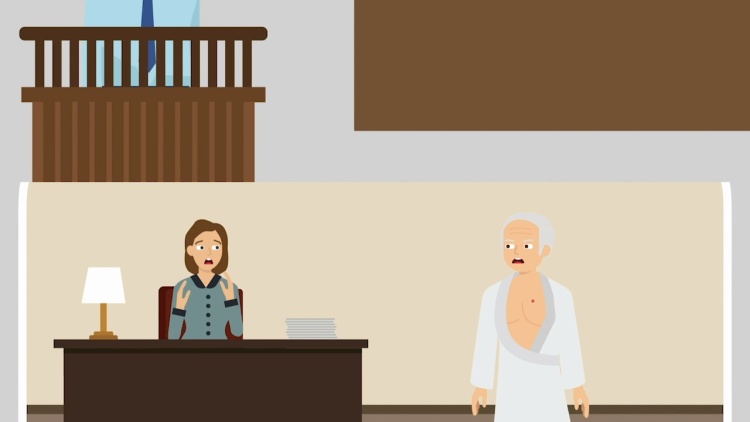Barnes v. Marshall
Missouri Supreme Court
467 S.W.2d 70 (1971)
- Written by Mary Pfotenhauer, JD
Facts
Dr. Marshall (Marshall) executed a will which provided bequests to various organizations and individuals other than his immediate family. Upon Marshall’s death, Jill Barnes, Marshall’s daughter (Barnes) (plaintiff), filed suit against the beneficiaries under the will, John Marshall and others (defendants), to have the will declared invalid. At trial, Barnes provided many lay witness, who testified that Marshall believed God spoke directly to him and told him what to do; that he was a prophet; that he turned people over to God and God meted out punishment to those people; that God told him to leave his medical practice and run for Congress and President, which he did, on a platform of eliminating public debt and killing bankers and politicians; that when Marshall spoke of God meting out punishment and other similar subjects, he would become highly emotional, would pound his fists on objects, his face would become red, and his eyes and the veins of his neck would bulge out; that Marshall would leave his house wearing only a nightgown; that Marshall once exposed himself to employees at a factory; and that Marshall was unreasonably jealous about his wife. Several of the lay witnesses offered their opinion that Marshall was not of sound mind. Barnes also offered the testimony of two doctors, who testified that Marshall suffered from manic-depressive psychosis and was of unsound mind. The jury found that Marshall’s will was not valid because he was not of sound mind when he executed it. Some of the beneficiaries appealed, arguing that the evidence was not sufficient to submit the case to the jury, that the evidence merely showed Marshall was eccentric, that Marshall executed his will during a lucid period, and that the lay witnesses offered by Barnes should not have been allowed to state their opinion that Marshall was of unsound mind.
Rule of Law
Issue
Holding and Reasoning (Holman, J.)
What to do next…
Here's why 907,000 law students have relied on our case briefs:
- Written by law professors and practitioners, not other law students. 47,100 briefs, keyed to 996 casebooks. Top-notch customer support.
- The right amount of information, includes the facts, issues, rule of law, holding and reasoning, and any concurrences and dissents.
- Access in your classes, works on your mobile and tablet. Massive library of related video lessons and high quality multiple-choice questions.
- Easy to use, uniform format for every case brief. Written in plain English, not in legalese. Our briefs summarize and simplify; they don’t just repeat the court’s language.





